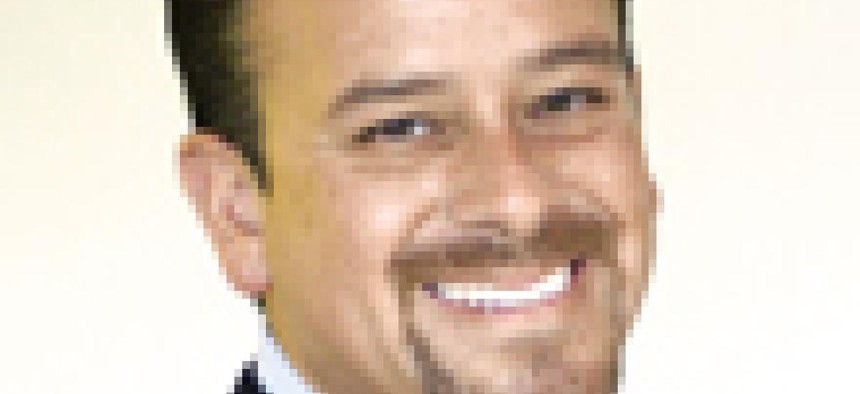Survival Guide: Raul Fernandez, chairman and CEO of ObjectVideo Inc.

Raul Fernandez rode the Internet's wild wave but didn't wipe out. He founded Proxicom Inc. with $40,000 in 1991, and built a $200 million-plus-a-year professional services firm specializing in Web solutions.
Raul Fernandez rode the Internet's wild wave but didn't wipe out. He founded Proxicom Inc. with $40,000 in 1991, and built a $200 million-plus-a-year professional services firm specializing in Web solutions. In 2001, just as the market was collapsing, he sold Proxicom for nearly $450 million.Fernandez became a part owner of the Washington Wizards and Washington Mystics basketball teams and the Washington Capitals hockey team. He's also kept busy with philanthropic and investment activities. But he missed what he called the "tactical" side of the business, working with a team to build a company and be a leader in the market.So in November 2003, he moved from being an investor in ObjectVideo Inc. of Reston, Va., to being the chairman. In January, he assumed the chief executive officer role for the six-year-old company, which makes intelligent video surveillance software.Fernandez spoke with Senior Editor Nick Wakeman about how he is applying the lessons from his earlier success. What is the most important role of a CEO? The role changes as the company evolves through its various stages of growth. ... For me, it is everything from strategic to tactical. Strategic is laying out the direction and the vision, and the tactical is the selling, hiring, repositioning --all of the things you do every day. At what stage is ObjectVideo? Late in the early stage. The idea of making video surveillance intelligent is still new, so we're educating a marketplace about what the technology can do now. We are introducing ways of doing things that traditionally have been very manual or labor-intensive. How are you applying your Proxicom experience? One thing is the idea of the evangelical sale. We started preaching and building Internet-based systems when they were still a novelty. We had to look at the way companies were doing business and convince them that this new way was secure and reliable and was the future.That is a similar environment today for intelligent video surveillance. We are introducing the power of software-based intelligence that can watch a video instead of a human watching a video. That change opens a whole bunch of business process issues, staffing issues and investment issues.The other thing is relationships. Those are extremely valuable the second time around. Some of that is [because] I have other interests that introduced me to other people and exposed me to different people, whether it is my sports interests or my philanthropic interest. The ability to get to just about anybody with a great reference is very helpful.What was your biggest mistake at Proxicom? I don't have any regrets in terms of how it was done or how we grew. Obviously, you make tactical mistakes. Wrong hires, maybe the wrong sets of expenditures in certain areas at different moments in time. No one plays a perfect game, but you don't sit back and regret it. What drew you to ObjectVideo?First, it was through my investment in the Updata Fund, which invested in the company. Also, ObjectVideo is across the hall from the old Proxicom offices, so I had bumped into the former CEO. But what really sparked my interest was when my former CFO [Ken Tarpey] joined as chief financial officer. I was able to reunite some of my old team and join with new team members that are bright and focused on being successful and being a leader in this industry.One thing that is different is that ObjectVideo is a software model, not a professional services model. So here, success is defined in part not just by selling direct, but also by building the channel sales infrastructure where others see the merit in selling your software to their clients.We have the challenge of selling to the end client while getting our channels in place. You have to pick the right channel partners and help them be successful while continuing to develop a great product. What are your strengths as a CEO? I enjoy getting involved in the tactical. I want to understand things firsthand instead of through two or three direct reports. I really love our size, because it is small enough where you have to be strategic, and you have to be tactical. The other aspect of that is where you really see teamwork, and you get all the positive experience of working as a team [instead of] as an individual.Working as an individual can be rewarding, but having a victory in a team-oriented way is more satisfying. That's what really brought me back. ... I missed that sense of accomplishment that comes with working with a group of individuals over an extended period of time and against an aggressive goal.

WT:
Fernandez:
WT:
Fernandez:
WT:
Fernandez:
WT:
Fernandez:
WT:
Fernandez:
WT:
Fernandez:

Raul Fernandez
Laurie DeWitt
WT:
Fernandez:
WT:
Fernandez:
WT:
Fernandez:
WT:
Fernandez:
WT:
Fernandez:
WT:
Fernandez: